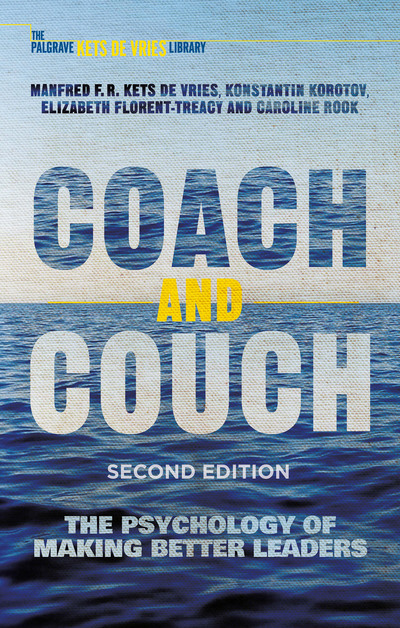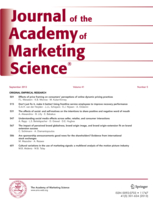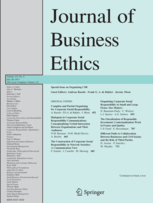Academic articles
Practitioner articles
Working papers
Books
Book chapters
Case studies
Other publications
Subject(s)
Marketing
Keyword(s)
Sales, customer relations, customer and client analysis, customer attitudes, preferences, customer relationship management, service profit chain, customer retention, personal selling, sales cycle, customer acquisition, sales closing, sales force management, sales management, collapse section sales systems, business to business, direct sales
Around 6:00 p.m. on May 31, 2007, Urs Müller and Christoph Burger from ESMT European School of Management and Technology were getting prepared for the presentation. In about an hour they would present their proposal for an executive education program to the CEO of Energie aus Deutschland Systems (EAD Systems) and two of his senior HR managers. Sitting in the lobby of a hotel in western Germany next to the main entrance of the EAD Systems headquarters, Urs recalled the pitching process by scrolling through his notes.
ESMT’s pitch to EAD Systems describes the efforts of ESMT European School of Management and Technology to acquire EAD Systems as a client for an executive education program. The case study comprises two parts, A and B, which allow comprehensively reviewing sales management in a professional services firm.
1. Understanding tender processes from the seller’s perspective: The case illustrates the typical process responding to a tender by putting together and proposal and presenting it to a B2B client, in this case a tender for executive education support of a company by a business school. As this particular process is largely in line with the tender process of other professional services such as consultancy, legal advice or auditing etc., the case can also be used to help students understand how professional service firms acquire business. To a lesser extend the case can be used to draw parallels and learnings for other B2B service offers, e.g. maintenance, complex solutions etc.
2. Understanding success factors for selling in tender processes: Beyond a mere description of the proposal process, the case helps students understand how to successfully structure a proposal process and which pitfalls are on the way. Hereby, students may improve their personal selling and sales management skills.
3. Managing the sales force: The case also allows to discuss the role of sales managers in leading sales people, especially with respect to the question of how they can get the best out of their people and what they can do to support them in their proposal and client management efforts.
4. Client management and retention: And finally – and possibly most importantly – the case sheds some light on the interconnection of winning clients on one side and managing and retaining clients on the other side.
| buy now | buy now | buy now |
Subject(s)
Finance, accounting and corporate governance
Keyword(s)
Asset pricing, mutual funds, flow of funds, mispricing, misallocation of capital, overinvestment, underinvestment, investment decision, implied probabilites
JEL Code(s)
D53, D80, G01, G02, G11, G12, G20
This paper studies the effect of new fund flows on investment behavior and the resulting equilibrium price of risk. The small fund industry model shows equilibria with overinvestment in unprofitable and underinvestment in profitable investment opportunities. The large fund industry model derives market prices for risk and analyzes the resulting price distortions in equilibrium. New flow of funds to the asset management industry lead to inefficient investment decisions, mispricing of risk, and distortion of market implied probabilities. Furthermore, the paper provides an explanation for partial market failure and trade among identical asset managers without assuming heterogeneous beliefs.
View all ESMT Working Papers in the ESMT Working Paper Series here. ESMT Working Papers are also available via RePEc, EconStor, and the German National Library (DNB).
Pages
39
ISSN (Print)
1866–3494
Subject(s)
Ethics and social responsibility
Volume
6
Journal Pages
483–485
Subject(s)
Human resources management/organizational behavior
Keyword(s)
Executive coaching, leadership development, executive education, psychology of leadership, clinical paradigm, talent management, HR management, executive coaching
Professor Manfred Kets de Vries and his colleagues have helped thousands of executives to increase their effectiveness in dealing with colleagues and clients, and to refocus their own professional and personal aspirations.
This book is a volume of essays on leadership development topics written by academics, coaches, and change consultants.
It explores how extraordinary leaders and thriving organizations are created by sharing research methodologies and insights, and by describing intervention and change techniques. Drawing upon substantial research, this book presents the essential leadership models and equips practitioners with tools for developing executive coaches and working with business leaders. This second edition includes new chapters on executive stress and coaching across the gender divide.
Volume
2nd ed.,
Pages
302
ISBN
978-1137561596
Subject(s)
Marketing; Strategy and general management
Keyword(s)
Customer satisfaction, organizational downsizing, layoffs, firm performance, organizational slack, panel data analysis
JEL Code(s)
M310
Organizational downsizing to cut costs frequently creates new, “hidden costs” that neutralize potential increases in productivity. Customer dissatisfaction is such an overlooked downsizing outcome. Using longitudinal data from the American Customer Satisfaction Index (ACSI), Compustat, and a consumer survey this study analyzes satisfaction outcomes of downsizing. It extends research in this domain to B2C markets and explicitly addresses environmental influences on the downsizing–satisfaction link. Results indicate that there is a negative effect of downsizing on customer satisfaction. It is particularly pronounced for companies (1) with little organizational slack, (2) with high labor productivity, or (3) in industries with high R&D intensity. Moreover, downsizing has a stronger negative impact on customer satisfaction in product categories with (4) high risk importance and (5) low probability for consumer errors as well as (6) low level of brand consciousness. Furthermore, customer satisfaction mediates the effect of downsizing on financial performance. The results provide an explanation for why so many downsizing projects fail and what managers can do to prevent adverse effects of downsizing on customer satisfaction and financial performance.
© Academy of Marketing Science 2014. With permission of Springer
Volume
43
Journal Pages
768–789
Subject(s)
Human resources management/organizational behavior
Secondary Title
Epinets: The epistemic structure and dynamics of social networks
Journal Pages
NP54–NP56
Subject(s)
Economics, politics and business environment; Ethics and social responsibility
Pages
79
Subject(s)
Human resources management/organizational behavior; Marketing
Keyword(s)
Corporate social responsibility, job product, employee job performance, cluster analysis, internal marketing, ideological job needs, developmental job needs, employee satisfaction, employee turnover intention
This paper examines how employees react to their organizations’ corporate social responsibility (CSR) initiatives. Drawing upon research in internal marketing and psychological contract theories, we argue that employees have multi-faceted job needs (i.e., economic, developmental, and ideological needs) and that CSR programs comprise an important means to fulfill developmental and ideological job needs. Based on cluster analysis, we identify three heterogeneous employee segments, Idealists, Enthusiasts, and Indifferents, who vary in their multi-faceted job needs and, consequently, their demand for organizational CSR. We further find that an organization’s CSR programs generate favorable employee-related outcomes, such as job satisfaction and reduction in turnover intention, by fulfilling employees’ ideological and developmental job needs. Finally, we find that CSR proximity strengthens the positive impact of CSR on employee-related outcomes. This research reveals significant employee heterogeneity in their demand for organizational CSR and sheds new light on the underlying mechanisms linking CSR to employee-related outcomes
© Springer Science+Business Media Dordrecht 2014. With permission of Springer
Volume
131
Journal Pages
319–335
Subject(s)
Economics, politics and business environment
Keyword(s)
Innovation, research, collaboration, performance, electricity, energy
Using a production function approach based on Cobb–Douglas, this analysis relates R&D efforts of 32 electric utilities on both sides of the Atlantic to their performance in terms of labour productivity. We find that higher R&D levels generally have a positive impact on revenues. However, only in the sub-sample of 16 electricity suppliers in Europe this effect is significant. Knowledge spill-over effects can be estimated for the US American sub-sample, since US utilities have bundled their R&D efforts in a centralized research institution and have to report that data. Our analysis reveals, though, that collaborative research efforts do not lead to positive spill-overs at the assumption of a time delay of one year.
Copyright © 2015 Elsevier Ltd. All rights reserved
Volume
86
Journal Pages
351–359
Subject(s)
Economics, politics and business environment
Keyword(s)
European competition policy, abuse of dominance, efficiency defense
JEL Code(s)
K21, L21, L40
Volume
11
Journal Pages
671–700



